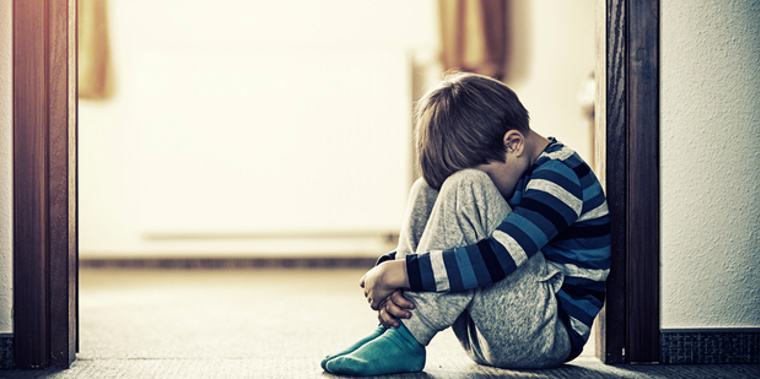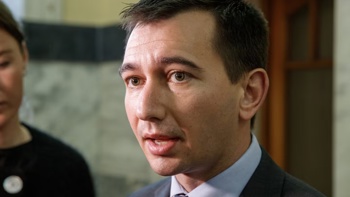
A teenage boy has been jailed for more than four years for sexually abusing two young children who had been placed in his family's care by Child Youth and Family.
The youth's parents were also convicted of physically assaulting a child in their care.
But none of the abusers can be named due to a court order suppressing details of the case.
The order also prevents the Herald from publishing where the family live.
The Herald was made aware of the case in late 2016 and the youth was jailed in March this year.
However, due to lengthy court delays, a further matter in the Youth Court and the young sex offender's battle for permanent name suppression, the story can only just be told.
According to court documents released to the Herald the youth began abusing the children, a 7-year-old girl and her 8-year-old brother, two days before Christmas in 2014.
He was 16 at the time.
The children had been placed in his parents care by Child Youth and Family - now the Ministry of Vulnerable Children Oranga Tamariki - in late 2012.
The couple was granted full custody of the youngsters in November 2014 - about a month before their son started to abuse them.
They were approved as caregivers in August 2011 and had 14 children live with them until October 2015, shortly after the offending was revealed.
It came to light after police executed a search warrant on the family home in relation to an unrelated sexual complaint against the youth.
He had been accused of the raping a 14-year-old girl and was later charged - but the case was dismissed after a judge-alone trial in the Youth Court.
When police began their investigation into that allegation, they discovered photographs of "young female and male genitalia" on an iPad.
Given the discovery and the allegation, police notified CYF who removed the young foster siblings from the home.
They were subsequently interviewed by social workers.
The 8-year-old girl revealed then that the youth would take her and her brother into his room after school
"[He] would make them take their pants off and play with each other's private parts," the police summary of facts stated.
The Herald has chosen not to describe the offending in detail - but the youth repeatedly made the siblings engage sexually with each other.
He also forced the girl to engage sexually with him.
The summary said when the children were interviewed by specialists, they were both reluctant to speak out about the youth.
"They both said they were too scared to say what had happened with [him].
The little girl told the interview that the sexual acts she was forced into were "too hard to talk about", but they were "inappropriate" and "something that she did not want to do".
She said the assaults occurred "every day".
"On some occasions it was after school, and on other occasions [he] would take [the girl] and [her brother] down to his room during the night."
The youth initially denied all of the offending, but later pleaded guilty to seven charges relating to the sexual abuse of the siblings and the objectionable images found on the iPad.
After he admitted the offending the case was transferred from the Youth Court to the District Court for sentencing due to the severity of the offending.
The Herald was at that sentencing and was later granted access to the court file which reveals, in graphic detail, the nature and extent of the sexual abuse.
At sentencing the judge told the youth she needed to "provide for the interests of the young victims, to hold you accountable, to deter and denounce this sort of sexual offending and to address your rehabilitative needs when, as a teenager, you are behaving in a serious way in terms of your sexual offending against vulnerable children who were in your family's care".
She said the children had been "traumatised" by the offending, were "hurt and embarrassed" and feel ashamed.
"This will have a long-lasting psychological effect… it is not understating this to say that you have probably created long term damage to the children," she said.
The judge set a starting point of 9-and-a-half years in prison but gave the offender a substantial 40 per cent discount for his youth and "impulsivity and immaturity of a teenage brain", his "minimal" remorse, and prospect of rehabilitation.
An expert told the court that the youth had been diagnosed with ADHD which made it difficult for him to develop relationships and triggered the offending.
"He does not consider that you have paedophilic tendencies, rather that you have developed a high sex drive in adolescence which led you to use pornographic imagery," the judge said.
She sentenced the youth to 4 years and 7 months in prison.
The Herald was ordered by the courts not to publish any details of the sentencing until after the sex charges relating to the 14-year-old were resolved in the Youth Court.
After those charges were dismissed, the youth was granted permanent name suppression.
That means the Herald cannot identify the sex offender or his parents - who both carry a conviction for physically assaulting a child placed in their care by CYF.
"I am satisfied that there would be extreme hardship if [his] name was published," the judge said.
She took into account the youth's age at the time of offending, the need to ensure he is rehabilitated and most importantly - the need to maintain the privacy of the victims "at all costs".
"Publication of his name may lead to identification of the children, given the familial-type relationship," the judge said.
She said the United Nations Convention on the Rights of the Child and the New Zealand Bill of Rights Act both "placed children in a different category from adults by recognising that they require special protection when appearing before the criminal court".
As the youth was 16 when he abused the siblings, he was considered a child under the law.
He was 17 by the time he was jailed.
The siblings' grandmother, who now cares for them fulltime, wrote a victim impact statement for the court.
She said the children were emotionally stressed about what the youth had done to them.
When they first came to live with her they were "very scared".
"They were very wary and always looking over their shoulders, always expecting to see [the offender]," she said.
"When I first got them [my grandson] was an extremely angry boy and would lash out at anyone for very little reason."
Counselling had helped the girl, who was gaining the confidence to talk about what happened.
She had encouraged her brother to do the same but he refused.
"[He] has stopped going to counselling, he says he has had enough of having to keep repeating the same talk.
"This has been very difficult for me as their grandmother and caregiver, watching the children how they have struggled through these things.
"But they are better and happier now than when they came to me."
Before he was sentenced, the youth wrote a letter to his victims.
That letter was read in court at sentencing.
"I know honestly this letter won't do all that much in helping you forgive me or even moving past my actions," he penned in child-like handwriting.
"I'm writing it anyway because I feel this is the only way I feel I can say how sorry I am for all the pain I have caused you both, physically and mentally.
"I know that my actions were wrong and I misused the trust you two had in me.
"I'm now taking responsibility for those actions - responsibility I should've taken from the beginning.
"I want you to know that I am incredibly sorry for everything I did to you two… if I could go back and stop myself from doing what I did… I would.
"I hope that one day you can forgive me, or more importantly move past this.
"I am trying to get the help I need so I never do this to anyone again."
The Ministry for Vulnerable Children, Oranga Tamariki said "immediate steps" were taken to ensure the siblings subjected to sexual and physical abuse by this family were safe as soon as the learned of the allegations.
The regional manager for the area where the offending happened, which cannot be published in line with a heavy suppression order, detailed how children were placed with the abusive family.
At the time of the offending the ministry was known as Child Youth and Family.
"This couple were approved as caregivers in August 2011, and their caregiver status was revoked in October 2015," he said.
"This couple had a total of 14 placements.
"Most of the children placed in their care during that time were with them for short-term respite care only."
The couple gained parenting orders for the abused siblings and two others in late 2014.
Those orders were issued by the Family Court, which endorsed the placement of the children.
"Prior to disclosure of the abuse that led to their prosecution, we were not aware of any concerns about this couple," the regional manager told the Herald.
"When the allegations emerged in August 2015, immediate steps were taken to ensure the safety of the children in their care.
"This included removing the children from the couple's care and placing them in alternative care arrangements.
"The children were interviewed and appropriate support were placed around the children and caregiver investigation was undertaken."
He said the ministry was "continually reviewing" its caregiver processes in terms of ensuring the safety of children and young people in its care
"We have taken this case into account, along with others.
"The ministry has recently released its Safety of Children in Care report which is an exploratory research report examining the safety of children and young people in care."
The report looked at the case files of 698 children and young people in care during 2015/16 and found 85 children and young people experienced an incident of harm ranging from emotional distress through to more serious trauma.
"The research highlights the importance of the ongoing transformation work by Oranga Tamariki to address the drivers of harm and improve the safety of children and young people in care," Oranga Tamariki chief executive Gráinne Moss said last month.
"Changes are already being implemented.
"Our new Practice Framework ensures that social workers are not only flagging incidences of harm in case notes, but also lodging formal notifications.
"We're working differently, making changes to keep kids safe, and we have clear expectations of our frontline workers to take action whenever they become aware of harm, or the risk of harm".
The ministry supports approved caregivers to help to meet the day-to-day expenses that looking after a child involves.
A care allowance is paid fortnightly and covers board, personal items and pocket money.
This allowance varies according to the child's age and ranges from $147 a week for a child under 4 to $206 for a child 14 and older.
A 4-weekly clothing allowance, and allowances for Christmas and birthday presents are also provided.
Take your Radio, Podcasts and Music with you









